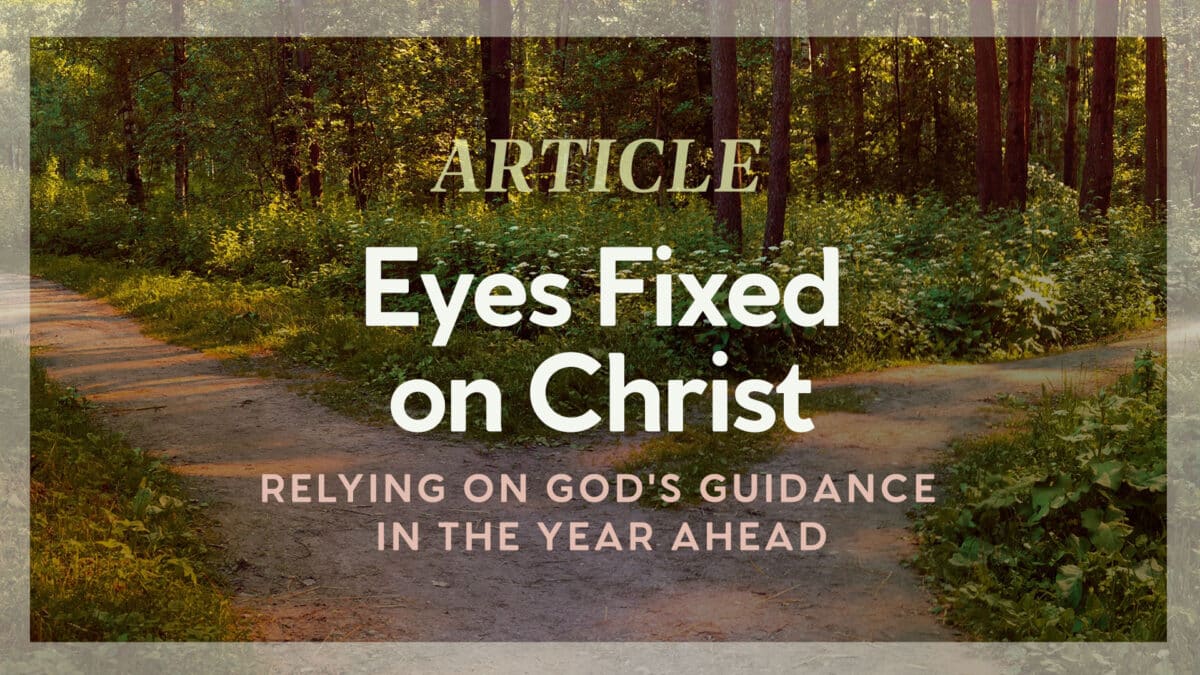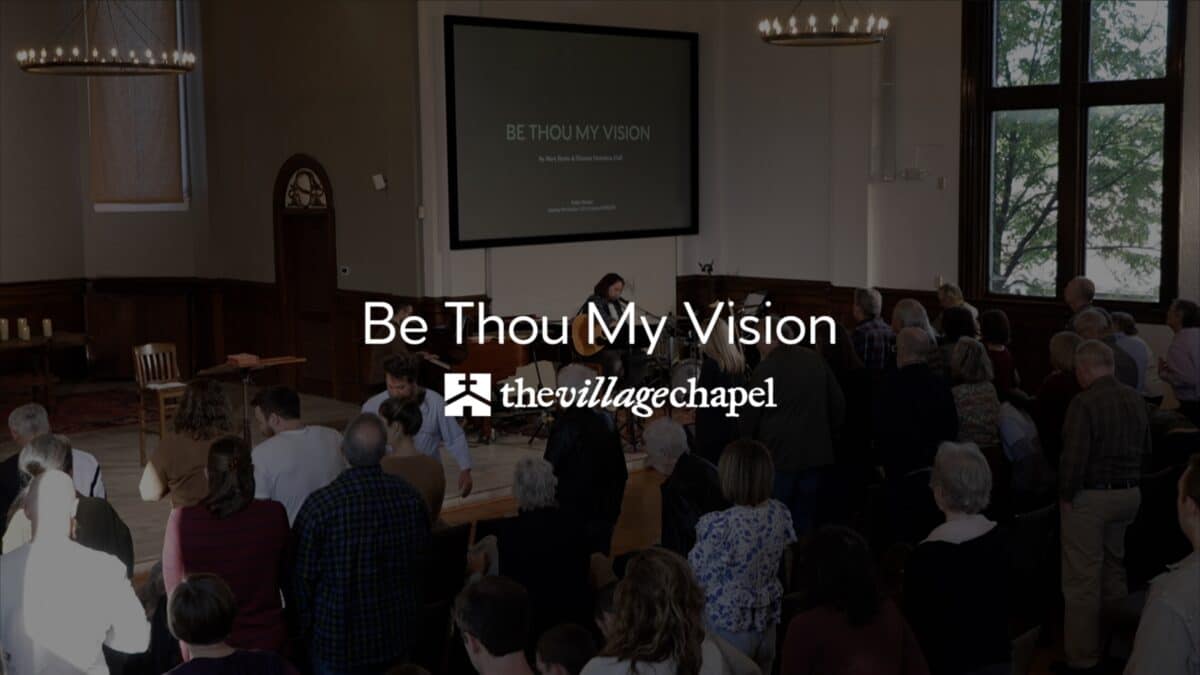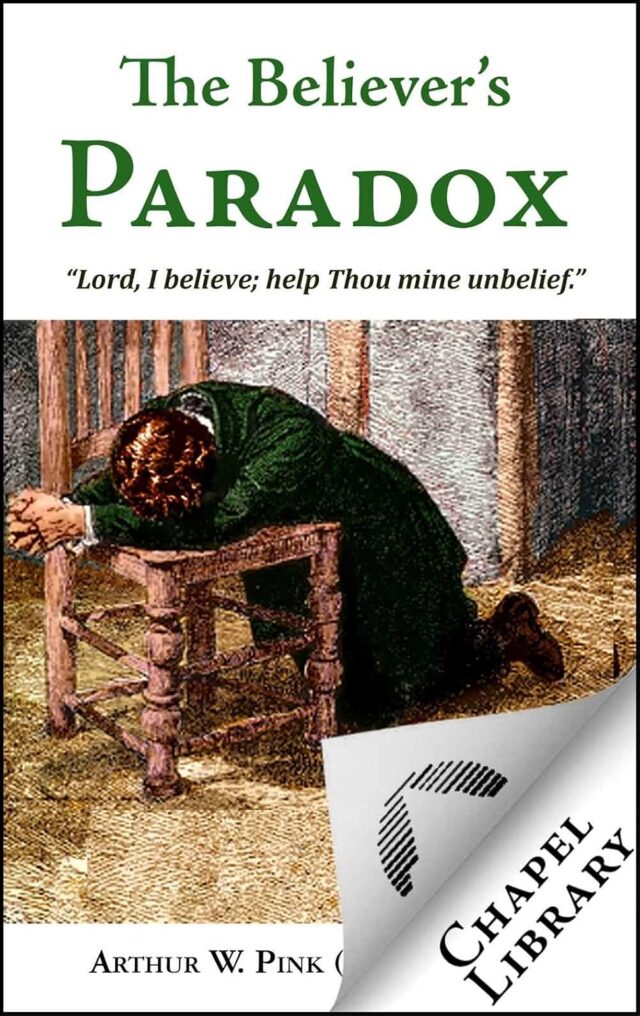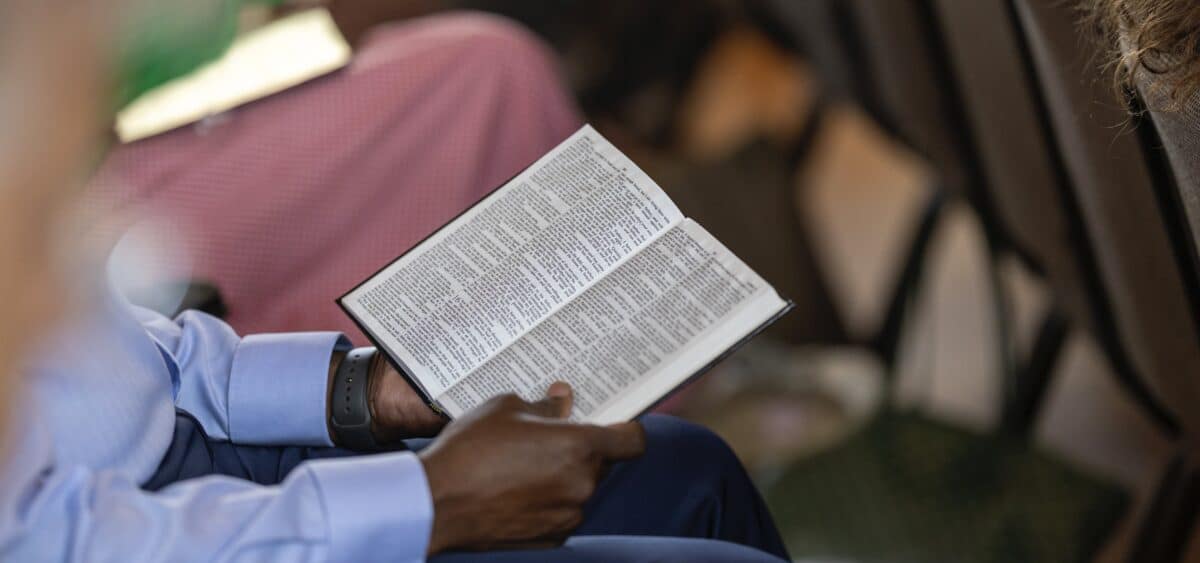Eyes Fixed On Christ: Relying On God’s Guidance in the Year Ahead
by Associate Pastor Tom Yarbrough
It’s already February, but it’s not too late to be intentional about how you want your year to look. The new year is a natural time to evaluate current rhythms, habits or motivations and engage in planning from a financial, educational, career or health perspective. But if we recalibrate these other areas of our lives without considering our spiritual vision, we are essentially working blind, without any vision. Why is vision generally important? Because what or who we fix our eyes on will determine where we go, and this is true for the believer and non-believer alike. Our lives—how we spend our time, energy and resources—are a bit like travelogues. We can look back at these things and read the story of where we have been. Why is spiritual vision specifically important? Because for the believer, these travelogues also serve as worship reports. They reveal what is most important to us. Let me reiterate that this is not simply reflected in our checking accounts but in our recently watched lists, the stacks of books on our bedside tables; our liked social media posts, our Amazon shopping carts and wish lists, and perhaps most of all, our calendars.
Where do we start? You might be like me, in which case you would benefit from renewed focus. For the Christian, renewed focus means renewed commitment. Rather than thinking about how to do life better this year than last year, we should honestly consider what was most valuable to us last year. What did you treasure more than anything else? Whatever it was, you are now enjoying the result of that prioritization. A good second consideration might be: would you intentionally and consciously commit to valuing that thing just as much this year? If the answer is no, and last year felt unintentional for you, you probably suffered from “drift”—an appropriate word to describe a passive way of living with no fixed point to steer toward. It’s more like sliding than deciding. The path is unclear, and the destination is non-specific. We rarely drift into health of any kind. And we never drift into commitment.
Spiritual and literal drift have been dangerous for God’s people since the Fall in Genesis 3. In fact, for the people of Israel, wandering in the wilderness (literal drift) after being freed from bondage in Egypt was the direct result of their lack of commitment (spiritual drift) to the God who rescued them (Numbers 14.) Israel would continue to drift into spiritual rebellion until they were moved to repent, renew their focus and recommit. But they always drifted away again. This cycle accounts for much of the Old Testament. And if I’m being honest, it also accounts for much of my life. When I think I can’t possibly lose my focus on Christ, something else catches my attention, and I drift.
God cares about what we fix our eyes on. It was not unintentional when God prescribed that the people of Israel, plagued by fiery serpents after speaking against God and Moses, were to look upon the bronze serpent on a pole to be healed (Numbers 21:4-9.) God punished their lack of trust and then mercifully redirected their focus. The same God spoke through the prophet Isaiah, “Turn to me and be saved…For I am God and there is no other” (Isaiah 45:22.) Jesus said of himself that “everyone who looks on the Son and believes in Him should have eternal life…” (John 6:40.) Paul wrote to the church in Corinth of the transformational result of “beholding the glory of the Lord…” (2 Corinthians 3:18.) This is not a “one and done” act in the life of a believer. Like the children of Israel, I am prone to wander, doubt, lose focus and forget. Turning my eyes back to Jesus over and over again is a necessary part of following Him in faith. My vision needs to be renewed.
In practical terms, this means recommitting to daily time spent with God in prayer and study of the Bible. It’s through these practices that we regularly have the opportunity to see Jesus and listen to God’s instruction. The prophet Isaiah described his daily encounters with The LORD this way: “Morning by morning he awakens; he awakens my ear to hear as those who are taught” (Isaiah 50:4.) Recommitment also means intentionally learning more about who Jesus is through scripture and Christ-centered community, serving in ways that reflect the Gospel, and growing in trust that He knows us completely and loves us unconditionally. What if these were the things we valued most and invested in, and everything else flowed downstream from these disciplines?
If you’re looking for language that gives voice to the type of renewal I’m talking about, consider the lyrics to the hymn, Be Thou My Vision. These words, translated into English in the early 1900s from an eighth-century Irish prayer poem, implore the LORD to be our vision and light, wisdom and Word, protection and power, treasured inheritance, and victorious King. Let it be so as we intentionally fix our eyes on Jesus, our Lord, in the coming year.
Be Thou My Vision
Be Thou my Vision, O Lord of my heart;
Naught be all else to me, save that thou art
Thou my best thought by day and by night,
waking and sleeping, Thy presence my light.
Be Thou my Wisdom, and Thou my true Word;
I ever with thee and Thou with me, Lord;
Thou my great Father, I Thy true son;
Thou in me dwelling, and I with Thee one.
Be Thou my breastplate, my sword for the fight;
Be Thou my armor, be Thou my true might;
Thou my soul’s shelter, be Thou my strong tow’r,
O raise Thou me heav’nward, great pow’r of my pow’r.
Riches I heed not, nor man’s empty praise,
Thou mine Inheritance, now and always:
Thou and Thou only, first in my heart,
High King of heaven, my Treasure Thou art.
High King of heaven, my victory won,
May I reach heaven’s joys, O bright heav’n’s Sun!
Heart of my own heart, whatever befall,
still be my vision, O Ruler of all.





